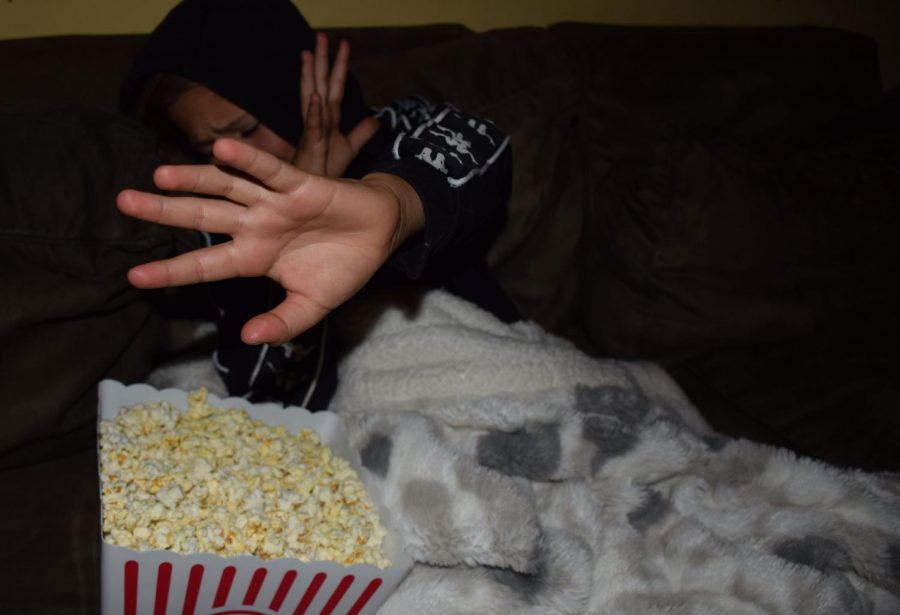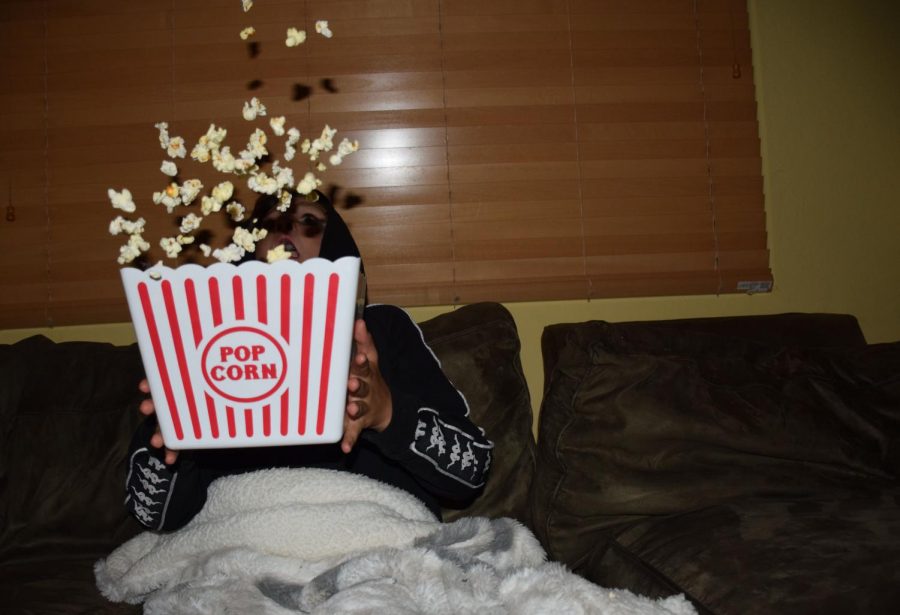Horrors’ Impact May Linger Like Classic Villians
October 8, 2019
Sitting beside my friends, anxious and eager, watching my 1st horror movie, was as exciting as I had anticipated. Screaming and hiding our faces under the blankets was part of the fun, and the fear I felt disappeared as quickly as it had arrived.
With the start of Halloween season, many teens are eager to watch bone-chilling horror classics like Chucky, It, and Scream. While scary movies can be a thrilling pastime, however, far more frightening than the films themselves is the potential for permanent psychological damage.
Exposure to horror movies can lead to the development of an array of disorders, especially in adolescents. According to psychology B.A. Lisa Fritscher, anxiety, phobias, and sleep disorders are only a few of the mental disorders horror fans may develop from a Stephen King movie marathon.
This is attributed to the fact that a person’s way of understanding the world develops as they grow, as stated in renowned Swiss psychologist Jean Piaget’s 1936 theory of cognitive development. This puts horror fanatics under age 18 at risk for lingering disorders resulting from their inability to discern fantasy from reality.
According to the Anxiety and Depression Association of America’s article “Children and Teens,” 1 in 8 children are affected by anxiety disorders. Thus, young kids are more vulnerable to being negatively impacted by horror movies.
Those suffering from anxiety disorders experience an array of symptoms, including increased heart rate, hyperventilation, trembling, sense of impending danger, and more, as stated in the renowned Mayo Clinic’s article “Anxiety Disorders.”
An anxiety disorder is not the only risk for teens and children who watch horror films, as sleep disturbances can also be developed, causing “an inability to sleep through the night for months after exposure,” according to University of Michigan researcher Kristen Harrison in the university’s study “Tales from the Screen: Enduring Fright Reactions to Scary Media.”
In the same University of Michigan study, Kristen Harrison and colleague Joanne Cantor of the University of Wisconsin found that some participants had “an inability to sleep through the night for months after exposure [to horror movies].”
While I personally enjoy horror movies, it is important for teens to understand that not everyone is able to watch scary movies in confidence and that the ability or inability to cope with exposure to horror content has to do with the brain.
When choosing a movie, teens should consider how they could be affected by horror content and the consequences of being exposed to gruesome or frightening films.


